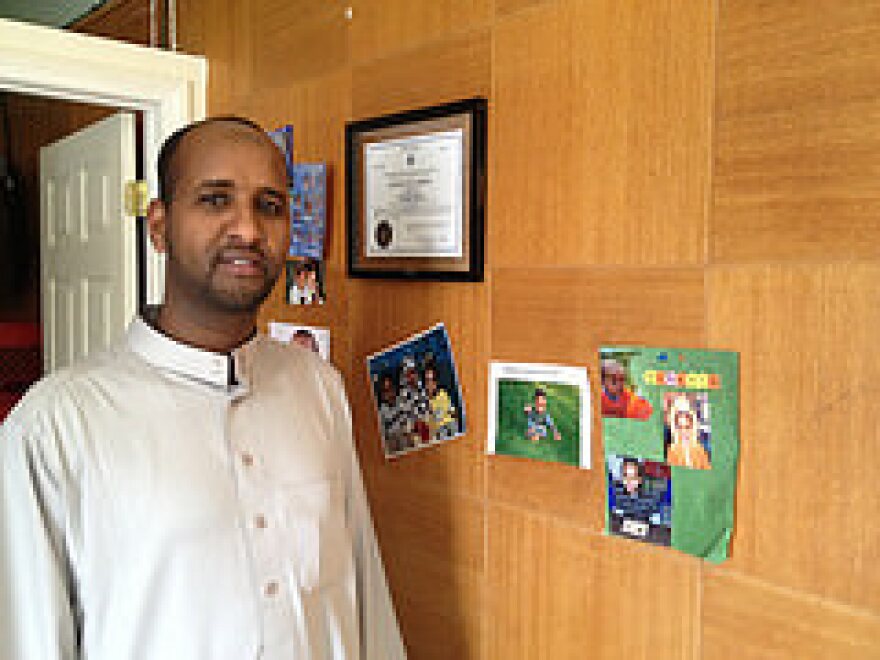When Somali immigrants come to the U.S., they often leave many family members behind. Many Somali immigrants serve as a lifeline for these family members, sending more than $200 million back home every year, according to OxFam America.
But that lifeline may soon be severed because banks that wire the money are getting out of the business. And that could have huge consequences for Somalia, as well as Somali Americans here in Maine.
At his family's downtown Lewiston market, 20-year-old Mohamed Ali says customers regularly use their money transfer service to send money back home to Somalia.
"It's almost like paying a bill. So it's like another usual thing you do," he says. "So a lot of people come in, send $50 or $100 to their families, and it's very much a common thing."
Ali says the money family members in Somalia receive is critical to survival. "For them, it's like a life-changer. That's the only income they have," he says. "Really, there are no jobs over there. People don't have ways of making money. They depend on the people here - the families here to make a living, to be able to eat."
Somalia doesn't have a developed banking sector that's linked to the international banking system. To send money, small transfer services such as the one for which Ali works will wire money to other Somali-American transfer companies, usually based around large Somali populations in the U.S., such as in Minnesota.
But only a few U.S. banks are willing to wire the money to its final destination in Somalia. And citing pressure from federal regulators, at least one of these banks - Merchants Bank of California, according to media reports - plans to stop sending money.

"This is a problem. It's really an alarming problem," says Hussein Ahmed, who also runs a market and money transfer service in Lewiston. He sends money to his father every month, and says his own business would suffer if he couldn't provide the service to his community.
"The worry affects many levels," he says. "It affects business, it affects loved ones back home who are relying on this service."
Merchants Bank did not respond to a request for comment by airtime. But Scott Paul, a policy advisor for OxFam America, says banks are concerned that some of the money being transferred could be used for money laundering or other criminal activities. Paul says shutting down wire transfers would only make matters worse.
"Because if formal channels shut down, people will send less money, and that will hurt families," Paul says. "At the same time, the money people do send will go through informal channels. And that's completely underground. Regulators won't be able to track the money. Law enforcement officials won't be able to figure out who is receiving it. So that's the worst-case scenario."
Instead, Paul says, there should be measures to further improve transparency of money wire companies, which he says already meet industry standards.
"Because Somalia is such a unique destination for money transfers, Somali companies need to be far above the industry standard for banks to feel comfortable," Paul says.

Said Mohamud, of Lewiston, says he's all for more regulation and transparency. He says Somalis in Maine just want to help family back home in an honest way.
"Otherwise, all of the youth, all of the girls or boys, they may turn to extremists because they are disadvantaged, because they can't go to school," he says. "They can't get any job there."
According to OxFam America, the $1.3 billion that Somalis around the globe send back home every year is more than a third of the country's economy - more money than it receives in humanitarian aid, development aid and direct investment combined.



